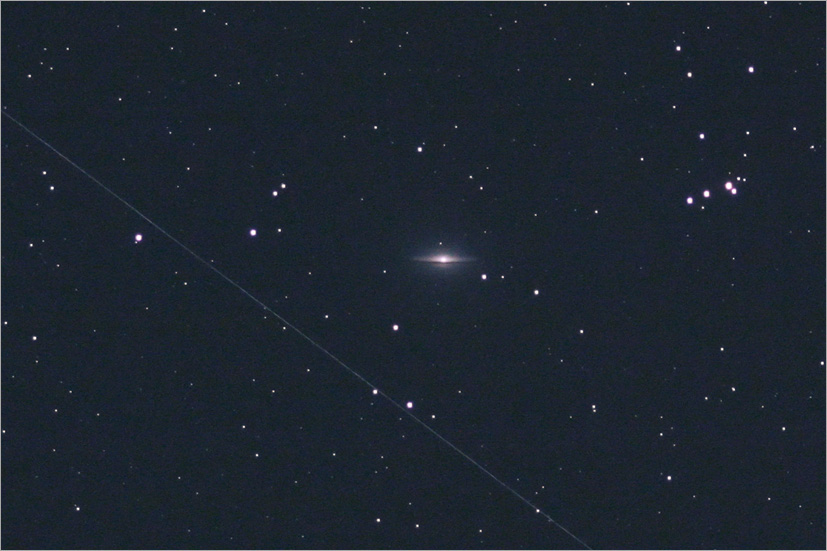
Prime-Focus Tracked
Galaxy M104
This image of M104 was shot at an ambient temperature of 65 degrees Farenheit (18.3C).
In-camera long-exposure noise reduction was used in this 150-second exposure to reduce the thermal signal from heat in the camera.
|
|
M104 is the Sombrero Galaxy in the constellation of Virgo.
The diagonal line is a satellite that passed through the frame during the exposure.
The Sombrero is a 9th magnitude spiral galaxy about 8 x 4 arc minutes in size, with a distinctive dark dust lane that bisects the core.
It was discovered in 1767 by Pierre Mechain. Charles Messier added it to his catalog of non-stellar objects on May 11, 1781. This galaxy was the first found to have a red shift too great for it to be a part of the Milky Way galaxy, making it the first extra-galactic object identified.
M104 harbors a super-massive black hole with a mass of 1 billion suns at its center. It is located about 30 million light years from the Earth.
Image Data
- Lens / Scope: Stellarvue SV70ED ED doublet refractor
- Focal Length: 420mm
- F/stop: f/6
- Exposure: Single 150-second exposure
- Mount: Orion Sirius polar-aligned German-equatorial mount
- Guiding: None
- Camera: Unmodified Canon EOS 1000D (Digital Rebel XS)
- Mode: JPEG
- ISO: 1600
- White Balance: Custom, set on sky background
- In-Camera Noise Reduction: On
- Filter: None
- Temp: 65F
- Start Time: 11:53 p.m.
- Date: April 23, 2009
- Location: Tuckahoe State Park, MD
- Calibration: None
- Processing: Standard in-camera JPEG processing. Color adjusted a bit in post processing.